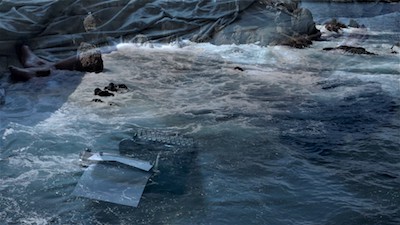|
|
Anna Gimein |
Spain / 2020 / 1:20:00 |
"…I find it extraordinary that young men died there in a war that long ago, and then died in the same place three thousand years after that." Mistress is a video art project that began with the reading of "Wittgenstein’s Mistress", an experimental novel published in the US in 1988 after its author, David Markson, received 54 rejections from different publishers. In the process, it turned into a feature-length film. Work on the project began in 2019 with the idea that thirty years after publication and almost twenty years into the start of the next century was a good time to revisit Markson’s book from the perspective of “now”; a now in which we are again aware of the return of everything we believed to have been understood, eradicated, overcome.
The narrator’s thoughts revisit the same places, people and stories time and again, remixing them in different ways, creating different of lists of the great figures of culture: those who went mad, those who died destitute, the raped, the dead, or the simply very sad; of the young men who died in Troy more than three thousand years ago and then died in the same place again. And thus we, too, return to the book. But our “now” is now different. Upon finishing the video, in the now of the spring of 2020, everything has changed, and will continue changing; the reading of the book is different, and Mistress, too, is different. The etymology of words not always corresponds with the use they end up acquiring. Think of Markson’s phrase, “At least the word mistress had finally gone out of style .” Yet he uses it in the title. We are all free to look up the meanings in the dictionary of our choice, going beyond the repetitive comment of the impossibility of Wittgenstein having had a mistress. In translations, the word ends up being the equivalent of “lover”, losing the duality of meaning. Losing the other, the important sense of Markson’s title, which is better understood placing the emphasis outside the realm of relationships and sexuality: that of a woman in position of control. Mistress is not in control of the world, but of a certain legacy of humanity, of which she is the only living heir.
The novel was written in the eighties of the past century, when things like climate change and the regression of human rights were not yet as obvious as they are in the twenty-first century. The “story” begins after the end of the world, the end of all living beings –humans, insects, and any creature that once crawled upon the earth. Yet this apocalypse is of no interest to us, we do not know its reason; our “story”, Markson’s story, begins at that point. After the end, everything remains: the knickknacks, the machines, the matches, the paintings and the books. The myths and anecdotes – these latter remain in the head of the only creature alive, a woman of a certain and uncertain age, which they inhabit together with past pain and a certain humor of her here and now. She is the mistress of the universe, “appointed the curator of all the world”.
It is possible that outside her head, the world and humanity continue to go about their business as ever, that the apocalypse is only her own madness. Only a few months ago, I thought that it matters little: like all of us, Mistress continues on –or, if you prefer, simply remains– living in the world of recollections, in which the loves and the heartbreaks, the vicissitudes of a personal past, coexist on the same plane as those of Spinoza, Clytemnestra or Rembrandt, Medea or Electra, Artemisia Gentileschi or Jeanne Hébuterne. In the only human world she still possesses, Maupassant rows, as does she at times, and when she puts on underpants for the sole reason of the hardness of the chair on which she sits, she recalls that Pascal refused to sit on a chair without an additional chair at either side, so as not to fall into space… Mistress is the proprietor of her world –of our world or what remains of it– just as we are. Alone like any of us, literally or emotionally, she eats, bathes or gives herself pleasure, observes the passage of time in herself and in her surroundings, living with what remains of her civilization, which exists –still, again– only because she exists.
|
|

There is a second duality in the development of the novel: that of madness versus “the end of the world”. As we make our progress through Wittgenstein’s Mistress, there is change of balance: we move from the passing and past madness of which she speaks in the first pages, in which the probability of a strange end of life on the planet holds weight, to the narrator’s present, more permanent madness. Not so in Mistress, where this change of balance does not exist; madness holds the same weight as the probability of the end of life, and both are light. But in the spring of 2020, the equilibrium has changed even in the reading of the Markson’s novel: we now glimpse the end of life as a possibility that is much less remote. This spring, Mistress is sane agaim.
The Mistress project was made possible by a grant from the regional government of Madrid, Ayudas a la Creación de Artes Visuales de la Comunidad de Madrid.
|